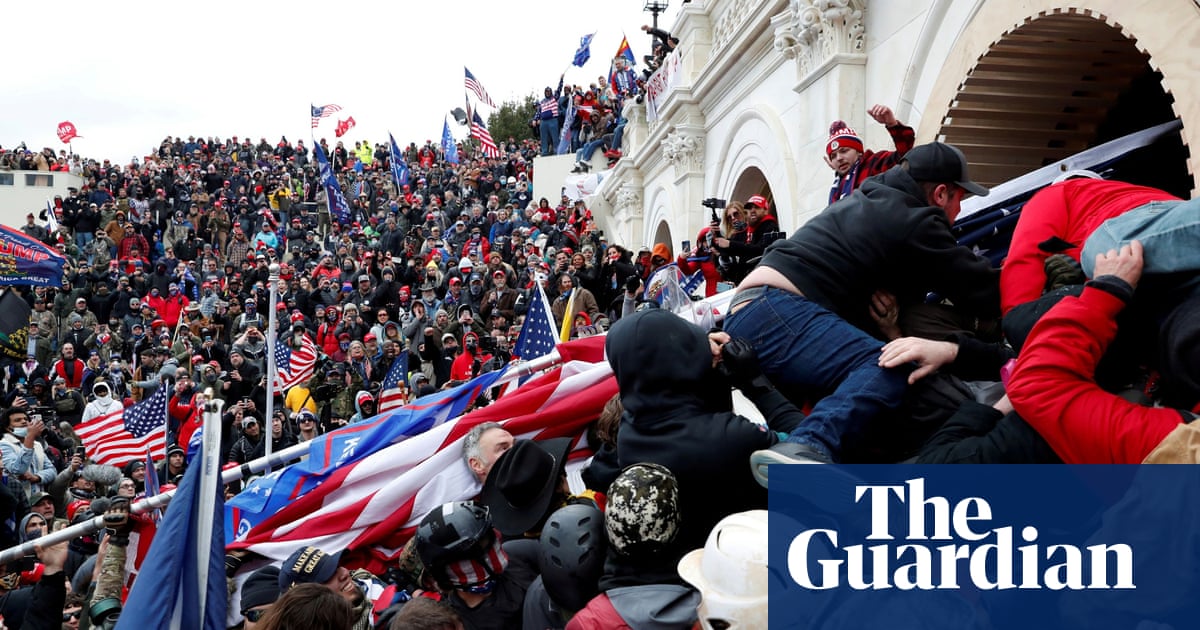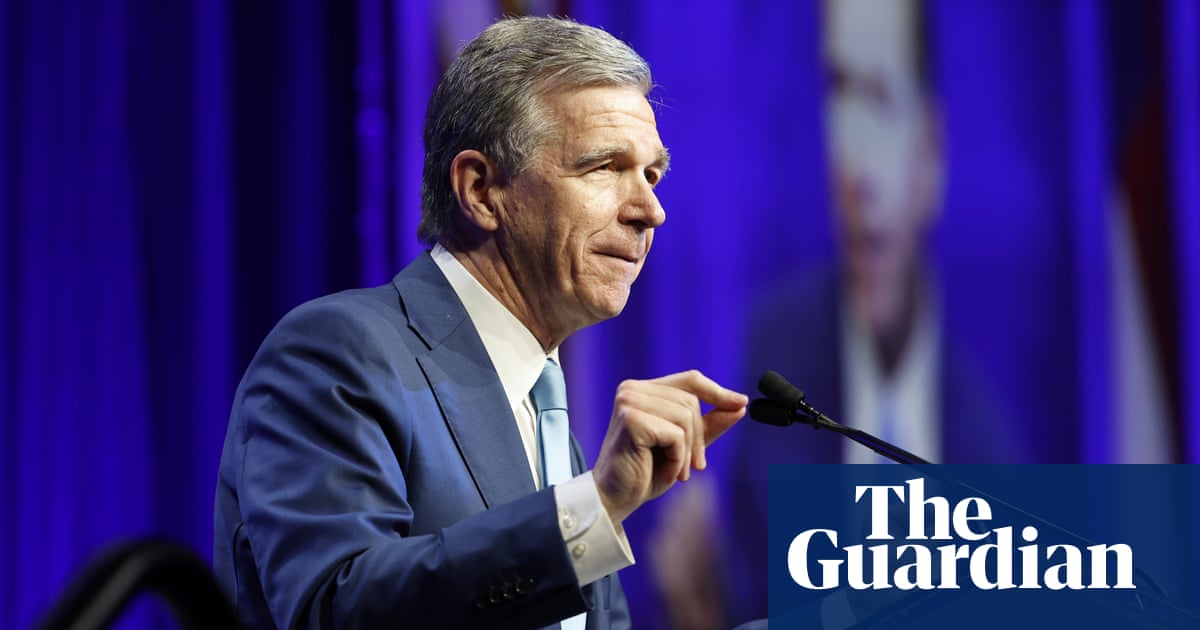“Merry Christmas,” Donald Trump wrote on his Truth Social platform on Christmas Day with a photo of himself and his wife, Melania. So far, so traditional. But the US president-elect was just getting started.
In another post, Trump wished merry Christmas to all “including to the wonderful soldiers of China, who are lovingly, but illegally, operating the Panama canal”. He poked fun at the Canadian prime minister, Justin Trudeau, and claimed the US could annex Canada as its 51st state. For good measure, he addressed “the people of Greenland, which is needed by the United States for National Security purposes and, who want the US to be there, and we will!”
It was the type of diatribe that, if delivered by a drunk uncle at the Christmas dinner table, might be laughed off or undercut by “Anyone for dessert?” But Trump, 78, is less than a month away from accessing the nuclear codes and commanding the strongest military in the world. No one is quite sure whether to take him literally or seriously – or both.
Notoriously mercurial and whimsical, this is the man who, it was once said, does not play three-dimensional chess but more often than not is just eating the pieces. There are also suspicions that Trump is looking for leverage as part of the “art of the deal” – and that the former reality TV star is grabbing headlines to look strong at home and abroad.
Reed Galen, president of JoinTheUnion.us, a pro-democracy coalition, said: “The guy’s been a troll for nearly 80 years. The problem is now he happens to be a troll who is about to run, again, the most powerful nation that humanity has ever known. He wants to do this because he wants outrage. He wants, to the extent that he thinks he can induce it, fear or panic. Chaos is the coin of his realm and it always will be because things being out of control is the only way he’s in control.”
The idea of buying Greenland is not a new one for Trump. When he first raised the prospect of purchasing the vast strategic island, a Danish territory, during his first term in 2019, it was widely treated as a joke. But then Trump cancelled a trip to Denmark after its prime minister, Mette Frederiksen, spurned him.
Trump revived his push last weekend when naming his ambassador to Copenhagen, saying the “ownership and control of Greenland is an absolute necessity” for US national security. But he received the same answer, with Greenland’s prime minister, Múte Egede, saying on Monday the resource-rich island is “not for sale”.
At first glance, it all seems like political theatre of the absurd. But Trump, the disrupter-in-chief, has made a habit of turning the unthinkable into the thinkable into the inevitable.
Galen said: “We should take him seriously. If he shows up in Copenhagen with a $1tn check for Greenland, maybe the Danes will take it – I don’t know. But remember, too, this is a guy who’s never actually paid for anything in his life so whenever he says, I want to buy it, that’s not how it works.”
Meanwhile, the president-elect has also taken aim at Panama. He condemned what he called unfair fees for US ships passing through and threatened to demand control of the Panama canal be returned to Washington.
Trump said last Sunday if Panama did not agree “then we will demand that the Panama Canal be returned to the United States of America – in full, quickly and without question”. He also hinted at China’s growing influence around the canal, which was built by the US in 1914 to link the Atlantic and Pacific oceans. It was returned to Panama under a 1977 deal.
Panama’s president, José Raúl Mulino, dismissed Trump’s threats, saying that “every square metre” of the canal would remain in Panamanian hands. Trump responded on Truth Social: “We’ll see about that!”
As if two diplomatic spats were not enough, Trump has repeatedly teased neighbouring Canada that it would be a “great idea” to become the 51st US state – against a dark backdrop of threatened tariffs. He has also mockingly referred to Trudeau as “governor” – a title used by the top elected officials in each of the 50 US states.
Canada has sought to turn the other cheek. In an interview with Politico’s Playbook Deep Dive podcast, Kirsten Hillman, Canada’s ambassador to the US, said: “I think that the president-elect is having a bit of fun. Canada can take it. You know, we have a strong sense of who we are and we can dish it out.”

Indeed, Trump made plenty of rash statements in his first White House term that came to naught, including nuking hurricanes to stop them hitting the US and suggesting the injection of bleach to cure Covid. The second time around, however, feels different. Dubbed an “American Caesar”, Trump seems bolder, better organised and more intentional.
He now understands where the levers of power and pressure points are and is surrounded by more pliant loyalists. Whereas his first approach to Greenland was based on the instincts of a property developer, this time he is citing national security concerns – a sales pitch likely to have greater resonance on Capitol Hill.
Few experts expect him to declare war on Canada, Denmark or Panama – but they do perceive a combination of bluffing and bullying designed to throw allies off balance and achieve smaller wins. This harsh treatment stands in stark contrast to Trump’s repeated praise for leaders including Russia’s Vladimir Putin, who invaded Ukraine in 2022 in a land grab of his own.
For some it is horribly reminiscent of the imperialist “great game” of the 19th century. Brett Bruen, a former global engagement director of the Barack Obama White House, said: “It’s astonishing in the 21st century that we are still talking about global powers trying to take, whether by force or pressure, territory from other countries. We have the example of Putin trying to retake Ukraine. We have the example of China trying to take large swaths of the South China Sea.”
Bruen, president of the public affairs agency Global Situation Room, added: “Now we have Trump, who essentially is trying to force both Greenland and Panama to give up territory against their will, and that violates every fundamental principle of both international law and international stability.
“It opens a Pandora’s box of crises that would likely not be contained, because if Trump can threaten other countries’ borders then [Recep Tayyip] Erdoğan [of Turkey] and Mohammed bin Salman [of Saudi Arabia] and a whole host of other unsavoury leaders are going to do likewise.”
Trump’s sabre-rattling at Panama, and reported plans for a “soft invasion” of Mexico, targeting drug cartels through cross-border special forces operations or drone strikes, are likely to stir bad memories of the US among Latin American leaders and could push some into China’s embrace.
In 1973, for example, the US instigated a coup against Chile’s then president, Salvador Allende, a socialist who had been democratically elected. In 1989 the US invaded Panama to overthrow the military dictator Manuel Noriega, who had been indicted in the US on drug-trafficking charges. President George HW Bush told the nation that his objectives were to protect American lives, restore democracy, bring Noriega to justice and “ensure the integrity of the Panama canal treaties” before Panama took full control of it in 1999.
Trump’s sudden expansionism is doubly strange, because he has sharply criticised past US misadventures overseas. He obtained a series of deferments during the Vietnam war, railed against George W Bush’s invasion of Iraq and boasted that he did not take the US into any new wars during his presidency. His “America first” policy preaches isolationism, not foreign entanglements.
But for Larry Jacobs, director of the Center for the Study of Politics and Governance at the University of Minnesota, there are echoes of President Richard Nixon’s “madman theory” – embracing irrationality to keep adversaries guessing and on the defensive.
“He is making a series of outrageous, impossible threats,” Jacobs said. “We’re going to buy Greenland? It’s not for sale, it’s a sovereign country, it’s just ridiculous. What he’s done with Canada is in a similar land of make-believe. The Panama canal? That’s been settled for decades now. But it’s all a tactic in his mind for how to disrupt the status quo and improve the bargaining position of his White House.”
With Joe Biden rapidly becoming the ghost of Christmas past, Trump is the ghost of Christmas future for the next four years. Jacobs warned: “It’s an appetiser before the main course with Trump. This is going to be the presidency again. It’s about chaos. It’s about unpredictability. It’s about a kind of madman approach to the most powerful office on planet earth. It’s terrifying.”

 German (DE)
German (DE)  English (US)
English (US)  Spanish (ES)
Spanish (ES)  French (FR)
French (FR)  Hindi (IN)
Hindi (IN)  Italian (IT)
Italian (IT)  Russian (RU)
Russian (RU)  2 days ago
2 days ago
























Comments